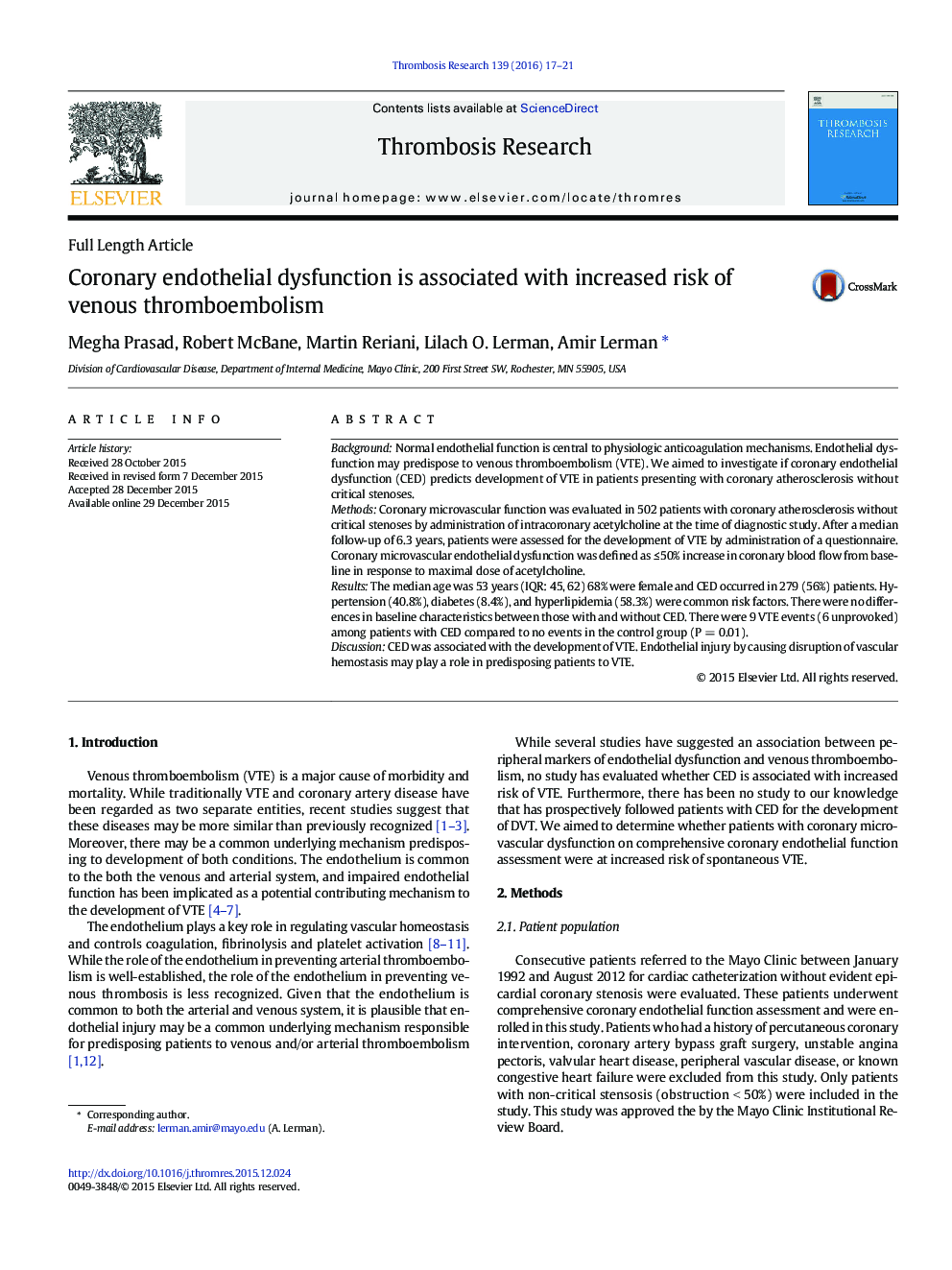| Article ID | Journal | Published Year | Pages | File Type |
|---|---|---|---|---|
| 3027029 | Thrombosis Research | 2016 | 5 Pages |
•Venous thromboembolism is a major cause of morbidity and mortality.•Coronary endothelial dysfunction may be associated with the development of venous thromboembolism.•The endothelium plays a key role in regulating vascular homeostasis and a role in development of venous thromboembolism.
BackgroundNormal endothelial function is central to physiologic anticoagulation mechanisms. Endothelial dysfunction may predispose to venous thromboembolism (VTE). We aimed to investigate if coronary endothelial dysfunction (CED) predicts development of VTE in patients presenting with coronary atherosclerosis without critical stenoses.MethodsCoronary microvascular function was evaluated in 502 patients with coronary atherosclerosis without critical stenoses by administration of intracoronary acetylcholine at the time of diagnostic study. After a median follow-up of 6.3 years, patients were assessed for the development of VTE by administration of a questionnaire.Coronary microvascular endothelial dysfunction was defined as ≤ 50% increase in coronary blood flow from baseline in response to maximal dose of acetylcholine.ResultsThe median age was 53 years (IQR: 45, 62) 68% were female and CED occurred in 279 (56%) patients. Hypertension (40.8%), diabetes (8.4%), and hyperlipidemia (58.3%) were common risk factors. There were no differences in baseline characteristics between those with and without CED. There were 9 VTE events (6 unprovoked) among patients with CED compared to no events in the control group (P = 0.01).DiscussionCED was associated with the development of VTE. Endothelial injury by causing disruption of vascular hemostasis may play a role in predisposing patients to VTE.
